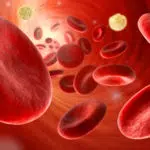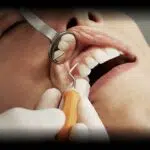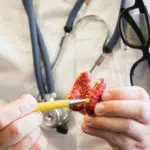In January, we celebrate National Pre-pregnancy Awareness Month, a month-long celebration that’s dedicated to sharing the importance of preparing your body and improving your health before becoming pregnant and to inspire you and your reproductive partner to take control of your fertility, starting with figuring out your pre-pregnancy wellness baseline.
Pre-pregnancy wellness is the state of your health prior to getting pregnant (usually one year beforehand) that influences your fertility and the health of your future pregnancy and baby. Understanding your pre-pregnancy wellness is important because healthier parents give birth to healthier babies. Because of this, experts agree that the optimal time for couples to improve their health is before becoming pregnant.
Optimal pre-pregnancy preparation involves more than stopping birth control or taking a prenatal vitamin. It has many steps and starts with figuring out your unique starting point through pre-pregnancy wellness testing, which looks beyond hormones to assess your whole health.
National Pre-Pregnancy Awareness Month is the time to figure out your pre-pregnancy wellness baseline, so you know what you are working with. As a result, you will be able to identify specific areas of improvement and start taking the necessary steps to enhance your overall health and fertility.
History of National Pre-Pregnancy Awareness Month
The concept of “pre-conception care” made an early appearance in a federal position paper in 1979 and later made its way into guidelines in 1983, suggesting the need to change the approach to pregnancy from reaction to prevention. To know more about the origins of the pre-pregnancy wellness movement, head to the timeline below!
From 1979 to the present, there have been several clinical guidelines established by leading medical organizations, but preconception care is still only accessed by <20% of the population.
The concept of “pre-pregnancy wellness” was created to modernize and streamline the approach to preconception care as well as to expand access to all couples hoping to conceive.
National Pre-Pregnancy Awareness Month timeline
The American Academy of Pediatrics (AAP) and the American College of Obstetrics and Gynecologists (ACOG), in partnership with the March of Dimes Birth Defects Foundation, published the first guidelines saying that “Preparation for parenthood should begin prior to conception. At the time of conception, the couple should be in optimal physical health and emotionally prepared for parenthood.”
The U.S. appointed a committee, The Expert Panel on the Content of Prenatal Care, and endorsed pre-conception health, recommending that the pre-conception visit may be the most important health care visit regarding its effect on pregnancy.
The Healthy People initiative by the CDC cataloged pre-conception care as a standard expectation within the healthcare system. It called for professional standards and structures to ensure annual pre-conception visits for every woman. The initiative stressed that reproductive awareness is not sex or gender specific. Reaching out to males requires thoughtful and innovative strategies, especially during the pre-conception and interconception periods.
Despite efforts made by the ACOG and the CDC, little action took place. Standards were not set or routinely available. Years after the first guidelines are published, less than 20% of females receive access to pre-conception care.
A new category is founded in health and wellness and establishing a new standard of care for fertility, starting with Pre-pregnancy Wellness Testing.
Poplin sponsors this month-long celebration dedicated to inspiring you and your reproductive partner to take control of your fertility health, prepare your body and improve your health before becoming pregnant. Want to be a sponsor: learn how.
National Pre-Pregnancy Awareness Month FAQs
What is pre-pregnancy wellness?
The term “Pre-pregnancy wellness” is the newest kid on the wellness block. Pre-pregnancy wellness is the state of your health immediately before getting pregnant (usually one year before) that influences your fertility and the health of your future pregnancy and baby. Pre-pregnancy wellness status is important for both females and males hoping to conceive.
When should I get pre-pregnancy testing?
It’s recommended that you start your pre-pregnancy journey 12 months before you desire to get pregnant. Upgrading your health takes time—correcting abnormalities sometimes takes up to 3-6 months or more, depending on what testing reveals.
Who are pre-pregnancy tests for?
Any female who desires to become pregnant in the next ~12 months. Pre-pregnancy tests are relevant for first-time pregnancies as well as subsequent pregnancies. In addition, pre-pregnancy tests can be helpful for anyone preparing for an assisted reproductive procedure (e.g., egg freezing, IUI, IVF).
Are pre-pregnancy tests the same as fertility tests?
Nope! A pre-pregnancy test will help you evaluate your whole health before you try to get pregnant; these tests are relevant for anyone who wants to become a parent one day.
On the other hand, fertility tests often focus on hormone levels and are usually only recommended when you have difficulties conceiving. These tests are not relevant for everyone.
How to Celebrate National Pre-Pregnancy Awareness Month
Get tested and start your Pre-pregnancy Wellness journey
Get tested to assess your health and identify any areas for improvement before conception. Testing provides valuable insights into your nutritional status, hormonal balance, and overall well-being. With personalized guidance and support, you’ll be empowered to make informed choices that promote a healthy pregnancy.
Encourage your reproductive partner to get tested too
Pre-pregnancy wellness is relevant for both females and males. Approaching your fertility health as a reproductive couple is a more effective family planning strategy. Collectively, you can identify risks and potential issues in both partners/donors giving you an abundance of information before you get to the intervention stage.
Talk to your friends and family
It’s time to spread the word about the importance of pre-pregnancy wellness—both for getting pregnant and having a healthy pregnancy. Educating others can help to prepare them pregnancy.
5 Surprising Facts About Pre-Pregnancy
Toxins can contribute to fertility challenges
The State of Preconception Planning in America 2022 report showed that 30% of females surveyed had significant daily toxin exposures. This can include food and water, personal care products (e.g., shampoo, lotion) or home care products (e.g., detergent). A key part of pre-pregnancy preparation is reducing toxin exposures and increasing detoxification capacity.
Being either underweight or overweight can negatively impact fertility
Weight can play a role in fertility. Being underweight can indicate that you are undernourished and can be responsible for insufficient hormone levels to sustain a pregnancy. Being overweight can indicate metabolic dysfunction and elevated hormone levels, which can interfere with conception and pregnancy. In both cases, pre-pregnancy wellness testing can help provide deeper insight into what’s going on in your unique body and whether it will be important to modulate your weight before conceiving (e.g., due to elevated inflammation levels or blood sugar levels or hormone levels, etc.).
Sex and stress are incompatible
Did you know that 60% of females perceive stress as a leading factor affecting their ability to get pregnant? And nearly 70% of females reported being moderately to severely stressed (The State of Preconception Planning in America, 2022). This is important because your sex hormones and your stress hormones are in the same biochemical pathway. Chronic stress can cause your body to divert resources from making sex hormones to making stress hormones, which can impact your ability to conceive.
Your pre-conception journey starts at least 12 months in advance
Starting 12 months before you desire to become pregnant will give you time to correct any abnormalities that might be detected on your tests. This way, you’ll be in peak health when you start trying! Healthier parents = healthier babies.
Egg quality is more important than egg quantity
Egg quantity is essentially irrelevant when it comes to conceiving. Diminished ovarian reserve only affects ~5% of females under 35. Focusing on egg quality instead of egg quantity is a more effective strategy as egg quality is largely modifiable through diet, lifestyle and supplementation at any reproductive age.
Why We Love National Pre-Pregnancy Awareness Month
Knowledge is empowering
National Pre-pregnancy Awareness Month promotes awareness and education about reproductive health. It helps individuals to make informed decisions that positively impact their future pregnancies.
It strengthens relationships
This month encourages couples to engage in open discussions about health and wellness. Communication strengthens emotional bonds as you prepare for parenthood.
It promotes healthy habits
It serves as a reminder to prioritize healthy lifestyle choices. Better nutrition and exercise habits can help to facilitate a smoother future pregnancy.
National Pre-Pregnancy Awareness Month dates
| Year | Date | Day |
|---|---|---|
| 2026 | January 1 | Thursday |
| 2027 | January 1 | Friday |
| 2028 | January 1 | Saturday |
| 2029 | January 1 | Monday |
| 2030 | January 1 | Tuesday |
















































































































